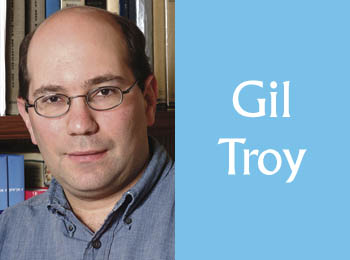Amid a glorious summer, with great weather, fabulous festivals and deliciously lazy days, the collective blood pressure of most Quebec Jews spiked, as the provincial election contest heated up, referendum talk mounted and property values prepared to nosedive. You don’t need the honed-by-history, trained-by-trauma instincts of a long-oppressed people to hear the demagoguery and nativism in the rhetoric of Pauline Marois and her Parti Québécois. All you need are the sensibilities of a humanist, the decency of a democrat, the passions of a liberty-lover. During the first great Palestinian terrorist onslaught of the 1970s, novelist Cynthia Ozick said Jews aren’t paranoid, but narapoid – a term she coined to mean when you think people are out to get you, and they are.
The Jews of Quebec live in a gilded cage. For many, Canadian niceness and the average Quebecer’s generosity generate many blessings: the standard of living is high, quality of life is good, community infrastructure is deep and Jewish identity is strong. Yet the nastiness of Quebec politics – and the ever-present, shouted today, perhaps whispered tomorrow, threat of separation, erodes community self-confidence and individual self-respect. Politically, most Jews are held hostage, forced to support the tired, ineffectual, tainted-by-corruption Liberal government of Premier Jean Charest, because the alternative isn’t just worse, but potentially catastrophic.
The separatist threat is debilitating enough, but Marois has raised the trauma considerably with her Charter of Secularism. The notion of banning Jewish, Muslim, and Sikh symbols in government offices but not, dare I say it, God forbid, the crucifix, because of its “cultural” significance – not its religious meaning of course – would be laughable if it were not so offensive. Marois has made it clear that she would invoke one of the least democratic planks in any modern democracy – the Charter of Rights’ Notwithstanding Clause – to impose her offensive, selective, Christianocentric, vision on Quebecers.
Fundamental rights of free expression and religious liberty shouldn’t be up for grabs. All Quebecers of good conscience should vote against Marois’ medievalism. This threat to peace, order and good government should also motivate Canadians across the country to rally against the Notwithstanding Clause. Provincial legislatures shouldn’t be able to suspend fundamental rights temporarily. The clause mocks the notion of constitutional guarantees.
I don’t get it. I thought the new generation of young, hip, cosmopolitan Quebeckers rejected their baby boomer predecessors’ extremism. Yes, there were historic imbalances between Anglophones and Francophones that needed correcting. And yes, these young, prospering, sophisticated Francophones have benefited from their elders’ boldness. But progress occurred, a new world developed, and now, this divisive, destructive demagoguery threatens all the good and goodwill that exist, while obscuring important work that needs to be done in improving the health-care system, cultivating the economy and making the infamous Quebec bureaucracy more respectful of individual citizens and their rights.
History teaches that a lynch mob atmosphere against some citizens ultimately hurts all citizens. So many people, be they of venerable French lineage or fresh off the boat, who have had run-ins with Quebec tax authorities or Quebec welfare boards or Quebec parking authorities understand that the province’s power dynamics are too skewed toward officious bureaucrats and against regular folk. We need a grand government worthy of its marvellous citizens, not a banana republic. Marois’ ethnocentrism and separatist talks diminishes individuals and the rule of law while preventing an important debate about this problem and many others.
There is one silver lining amid these gathering northern clouds. In targeting the hijab and the kippah, Marois has provided Muslim and Jews an opening for a much-needed dialogue. I have long wondered why every conversation between Muslims and Jews has to be about Israelis and Palestinians. We have many common challenges that could invite productive, meaningful exchanges. We should talk together about the tensions of preserving traditions in the modern world, of difficulties navigating smaller, more insular but nurturing communities along with larger, more expansive and empowering, yet sometimes alienating, communities.
In mobilizing together against Marois’ ethno-ugliness, Muslims and Jews might find some Canadian common ground and build strong ties that could help alleviate Middle East tensions. That would make us not just narapoid, but what I would call “fedended.” That’s when by defending yourself, you make yourself – and others – stronger.
This column appears in the August 30 print issue of The CJN
